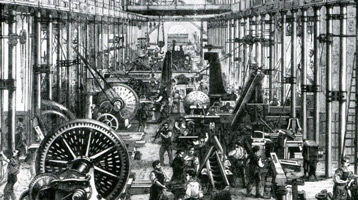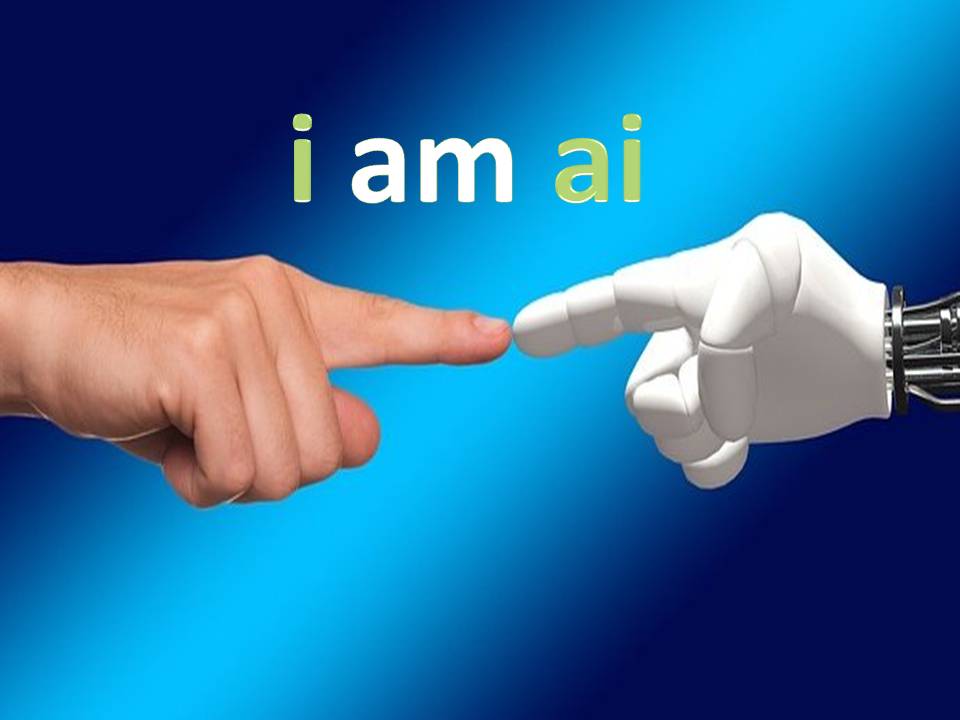Robots, automation, and artificial intelligence will forever change the future of work. These technologies will eliminate jobs and even industries, but they will also make workers safer and more efficient. Perhaps no workplace gives a better window into this future than a remote Oregon forest where loggers are seeing their jobs totally transform. Much like the Luddites before them, today’s workers are fighting an economic battle as much as a technological one.
Eric Krume, Founder, Krume Logging
“Now is not a good time to be set in your ways. The future’s here. Jump on board. The train is leaving the station.”
WHAT HAPPENS NEXT
Eric Krume is a logger who’s betting everything he has on the future.
Eric Krume, Founder, Krume Logging
“If this project is just a huge failure, it just means that I’m back to hand-to-mouth. It’s everything that I’ve got.”
Besides cutting trees, Eric Krume is also a self-taught engineer. And he’s spending all his money to build and send machines where they’ve never tread before.
Eric Krume, Founder, Krume Logging
“So, in the past, that machine, a machine like that, has never come up a hill like that.”
Like many American industries, logging has been swept by a wave of automation. But steep mountainsides have remained a last refuge for people on the ground, working with their hands. Until now.
Eric Krume, Founder, Krume Logging
“So, if you had two hand cutters cutting, and a seven-man rigging crew, that’s nine people, with at least six or seven of them on the ground. This is replacing those people directly.”
Understanding how automation is playing out in this industry can teach us a lot about the future of work far from the woods. While some of the benefits may be surprising, the pain will hit close to home. Eric’s son Tristan does a job that Eric plans to automate. After the trees come down, Tristan is one of workers attaching cables, by hand, to haul logs off the mountainside. And he said his colleagues see what’s coming.
Tristan Krume, Logger, Krume Logging
“Almost half, probably, just think their job’s getting stolen.”
In that way, what’s happening on these Oregon slopes could soon happen all over. The machines may soon replace many of us.
Eric Krume, Founder, Krume Logging
“The traditional logging, that we’re all used to, is over. Nobody can compete with the latest technology. Not if you’re doing it the old way.”
People studying how automation transforms employment generally agree that a vast swath of jobs will soon dramatically change or disappear.
James Manyika, Director, McKinsey Global Institute
“Probably in the last five years or so, we’ve seen these technologies make more progress than they’ve made in the last 50 years. Especially the artificial intelligence part.”
The worst predictions say 40 percent of today’s jobs could be lost to automation in only a few decades.
Farai Chideya, Author, ” The Episodic Career”
“But if even half of that manifests,we’re talking about a question of fundamentally restructuring what American life looks like.”
It isn’t the first time we’ve seen lives fundamentally restructured by machines. In 19th-century England, an economic recession, and changing fashions, and a wave of automation threw thousands of textile makers out of well-paid jobs. The workers who reacted by violently smashing machinery came to be known as Luddites.
Clive Thompson, Columnist, Smithsonian Magazine
“The people that became the Luddites—the croppers, the weavers—they were the middle class of that day. And that’s one of the reasons why they reacted so strongly when automation and machinery came along to take those jobs away. Because they were falling from a pretty high height. We’re talking about change that, in a matter of a few years, wiped out tons and tons of jobs. And so that makes you think about today. “
After the British government stamped out the Luddite movement, the textile industry continued to automate unabated. And some students of history say the Luddites’ core grievance wasn’t really about machines at all.
Clive Thompson, Columnist, Smithsonian Magazine
“They were comfortable with machinery. They’d been using tools for years. If technology was going to be used in a way that benefited everyone, they were happy with it. They saw this, really, not as a technological fight, but an economic fight. When the Luddites started breaking machines, it was because they had lost their attempt to mitigate the way that economic change would happen.”
Today, technologists say heavy economic change is coming to jobs that involve mind as much as muscle. The same way that Google Maps slashed the mental calculations needed to navigate around town, new systems could soon automate the judgment calls once needed to do stuff like prepare tax returns, or parse legal precedent, or make a medical diagnosis.
James Manyika, Director, McKinsey Global Institute
“I think that’s what makes this time different. Many of us imagine that a lot of things that require emotional intelligence are inherently human. Judgment, intuition; those are the things that are inherently human, where, historically, we’ve never really needed power tools for those things.”
And it’s likely that many people who never considered their work a candidate for automation will see artificial intelligence change their jobs in big ways.
James Manyika, Director, McKinsey Global Institute
“We actually found, in our research, that something like 60% of occupations have, on average, about 30% of their activities that can be automated. What that means is that you’re going to have, probably, more people working with machines, alongside machines.”
Manuela Veloso, Head of Machine Learning, Carnegie Mellon University
“So it kind of becomes this collaboration, this fluid, kind of like, exchange of talents between the machines and the people. From the discovery of fire, all the way to having a pen with which we write, we always have invented tools. AI is another tool. AI did not come from the sky.”
And here’s where it’s probably worth underscoring one of the biggest lessons the loggers may hold for the rest of us. Sure, automation is going to lead to less work for guys like this. But it will also lead to less of something else.
Eric Krume, Founder, Krume Logging
“If you have a man on a chainsaw falling trees, they’re eventually going to get hurt. “
“You’re the softest thing out here. If there’s an accident, you’re either going to be disabled, or you’re going to be dead.”
Logging has the highest death rate of any American occupation. For its size, logging kills people at a higher rate than the military.
Eric Krume, Founder, Krume Logging
“So, sadly, yesterday, a hand cutter got killed. It was pretty local. That really brings it home with what we’re doing. That could be one of my guys. I’ve come to the belief that the only way I can ensure the safety of my people is not have them there. The best way not to kill a hand cutter is to not have one.”
We can’t stop the automation coming to the woods, and we probably shouldn’t want to. The stakes may not be as high for the algorithms automating work elsewhere, but there are likely to be ways that the technology coming to your workplace will, one day, seem similarly indispensable.
James Manyika, Director, McKinsey Global Institute
“To the extent that automation is destroying either routine, uninteresting, dangerous, hazardous work, that may be a good thing. And also, hopefully, creating other kinds of work. And the economy has done that for decades. One of the things that gets lost in the conversation about automation is that there are actually enormous benefits to us as a society.”
The challenge remains dealing with the whirlwind pace at which our era’s technologies are entering and remaking our jobs.
Pablo Antonio, Contract logger
“I’ve been cutting timber for 22, 23 years. I have four kids. They need to learn a different trade.”
So what will the future of work look like? From here, it looks like a future where careers could become a changing story, of not one job, but many.
Farai Chideya, Author, ” The Episodic Career”
“The majority of people will end up having an episodic career. It’s great to ask kids, for example, what do you want to be when you grow up? But one thing that might be added to that question is, what five things do you want to be when you grow up?”
Eric Krume, Founder, Krume Logging
“You’re probably not going to do the same job you did when you were 20. You’re probably not going to do the same job for 40 years. The world is moving too fast right now. The worst thing you can do right now is nothing. Don’t be the guy who refuses to look at the future.”




